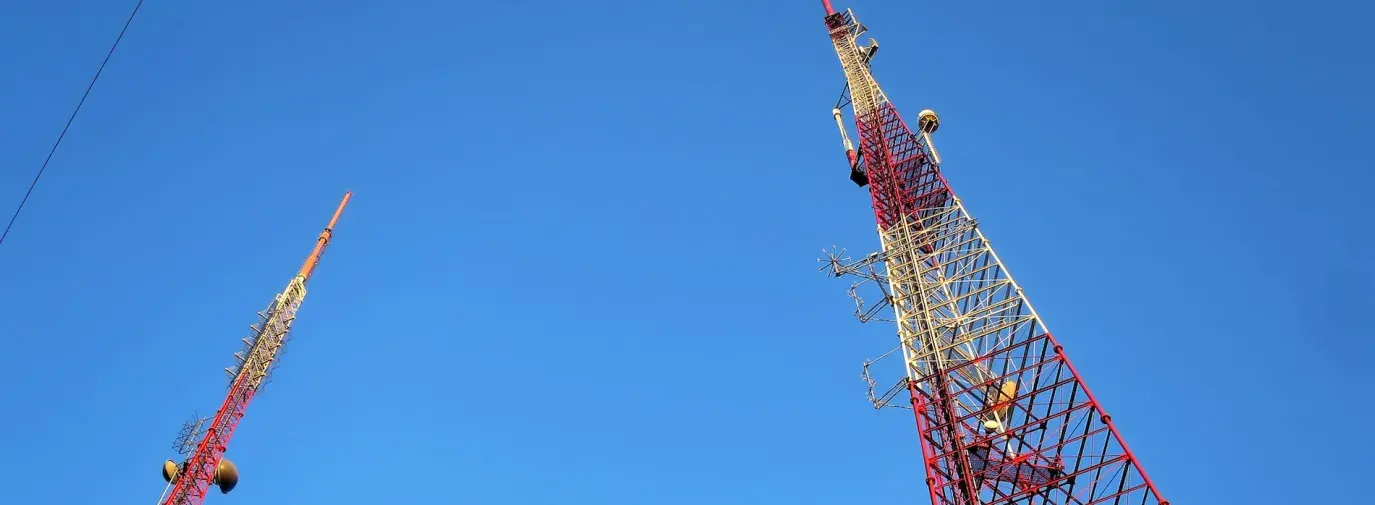
Companies Improve on Renewable Energy But Need Major Improvement on Equity and Impacts on Underserved Communities.
WASHINGTON, DC – JANUARY 26, 2023 – The three major U.S. telecommunications companies are significantly underperforming when it comes to energy justice, according to a new report by Green America. AT&T, Verizon, and T-Mobile each received C or D grades in the organization’s latest report, which investigates energy use in the sector and assesses the companies’ energy procurement on key principles of energy and environmental justice.
Calling for a Just, Clean Transition, part two, found that while telecom companies have made several of the largest corporate clean energy purchases ever since Green America launched its Hang Up on Fossil Fuels Campaign in 2018, the industry still has a long way to go to reach 100% renewable energy. And all of the companies must do more to ensure that their energy purchases support energy justice. It is not enough to simply purchase renewable energy. Companies also need to ensure that energy purchases support energy justice by benefiting communities most harmed by fossil fuels and incorporating these communities and workers into the process of siting and construction decisions.
The report includes a scorecard grading each company on renewable energy goals, renewable contracts, renewable use, and energy justice:

An overview version of the report is also available.
Dan Howells, climate campaigns director at Green America, said: “It is encouraging that the big telecoms are making progress in adopting renewable energy to protect the planet. Yet, T-Mobile, Verizon and AT&T all could be doing more to put new wind and solar power on the grid. And all three companies need to use their market power to advance energy justice and protect communities as well.”
The report finds that companies can improve their energy justice scores by contracting for energy from companies that make improvements around the following RFP criteria:
- Decision-making power: Form Oversight Boards and Technical Advisory Groups that are composed of environmental justice communities and frontline leadership. Environmental and energy justice advocates consistently stress the importance of ensuring participation – an aspect of procedural justice – by impacted communities, with meaningful opportunities to influence decision-making. The ability (or inability) to influence processes by which decisions are made directly informs the extent to which siting, energy burdens, and economic opportunities create just (or unjust) outcomes.
- Sourcing and Siting: Commit to use only regenerative and non-extractive clean energy solutions that reduce pollution in environmental justice communities. Formally exclude waste-to-energy incineration and woody biomass power from what is considered renewable, even if these sources of energy meet state renewable performance standard guidelines. Energy sources that continue to burden environmental justice communities with on-site pollution are diametrically opposed to energy justice. Where siting of renewable energy (for example, hydropower) creates impacts to local, disadvantaged and/or environmentally overburdened communities, this should also be mitigated and where possible, avoided.
- Energy burdens: Ensure energy affordability and offer low-income energy assistance to under-served and environmental justice communities. This includes (but is not limited to) supporting rooftop solar on public and affordable housing; supporting community solar projects; and other actions to reduce the energy burden on lower- and middle-income households, ensuring accessibility to renewable energy. Energy burdens are one of the most tangible problems facing families in low-income and BIPOC communities, and energy companies providing residential energy are directly positioned to provide more equitable access through a variety of programs and investments.
- Economic opportunities (entrepreneurship): Strive for a minimum of 30% subcontracts within the next five years to be with minority-and women-owned or managed companies. Develop plans to increase the minimum threshold as minority-and women-owned or managed businesses in the sector increase. Report out publicly on progress in achieving this goal. The clean energy sector is advancing, while perpetuating existing inequities in economic opportunity. A commitment to energy sourcing that relies on increased business with minority and women-owned or managed vendors can foster progress toward energy equity. For publicly traded companies, this means incorporating minorities and women into positions of leadership, including in the C-suite and on boards.
- Economic opportunities (inclusive workplaces): Incorporate diversity, equity, inclusion, justice, and belonging (DEIJB) throughout its workforce and across leadership roles or must have stated goals to increase diversity and reform culture in the sector with measures for accountability. Energy companies should be advancing toward truly inclusive and equitable workplaces internally, including accountability measures, to support progress in a traditionally male and white-dominated industry.
Elizabeth Silleck La Rue, report author and CEO of Silleck Consulting Services, LLC, said: “Systemic inequities won't reverse themselves; it will take genuine, intentional, and sustained effort to create a renewable energy industry that fairly distributes decision-making power, benefits and burdens. Where the fast-growing and increasingly critical telecommunications and renewable energy industries intersect, there's an opportunity to level the notoriously imbalanced power dynamics that plague the energy sector. Let's take it."
Fossil fuel extraction, combustion, and waste disproportionately harm communities of color, leading to significant environment and health impacts. In the transition to renewables, it is also essential to ensure that jobs in wind and solar benefit impacted and underserved communities. Currently, women of all races, and Black, Latino, and Indigenous peoples are underrepresented in the clean energy workforce. When solar and wind facilities are built in or near vulnerable communities, those communities must have key roles in the process and obtain benefits from the installations.
Part one of the report was released in 2022 and outlined the steps companies need to take to improve on energy justice. The report can be found at https://reports.greenamerica.org/energy-justice.
###
ABOUT GREEN AMERICA
Green America is the nation’s leading green economy organization. Founded in 1982, Green America provides the economic strategies, organizing power and practical tools for businesses, investors, and consumers to solve today’s social and environmental problems. http://www.GreenAmerica.org
MEDIA CONTACT: Max Karlin for Green America, (703) 276-3255, or mkarlin@hastingsgroupmedia.com.



